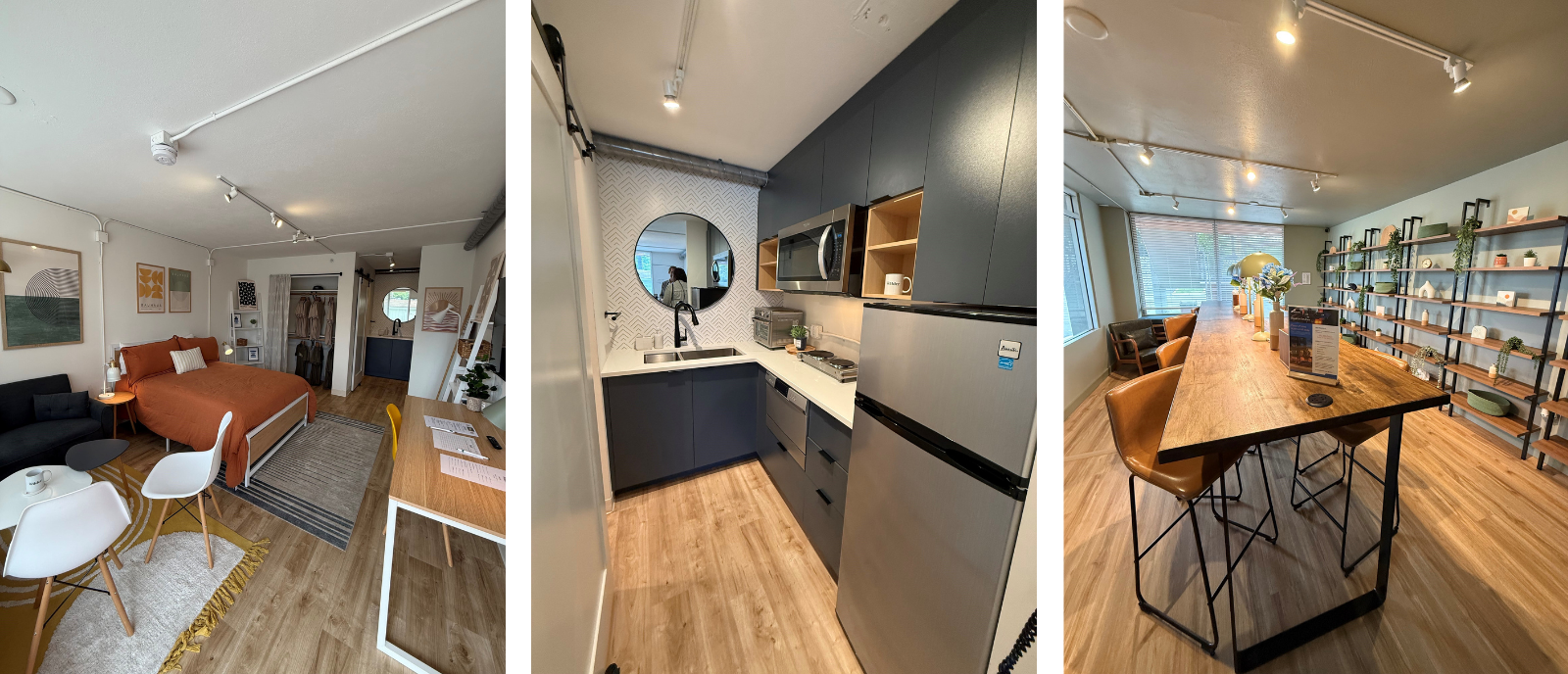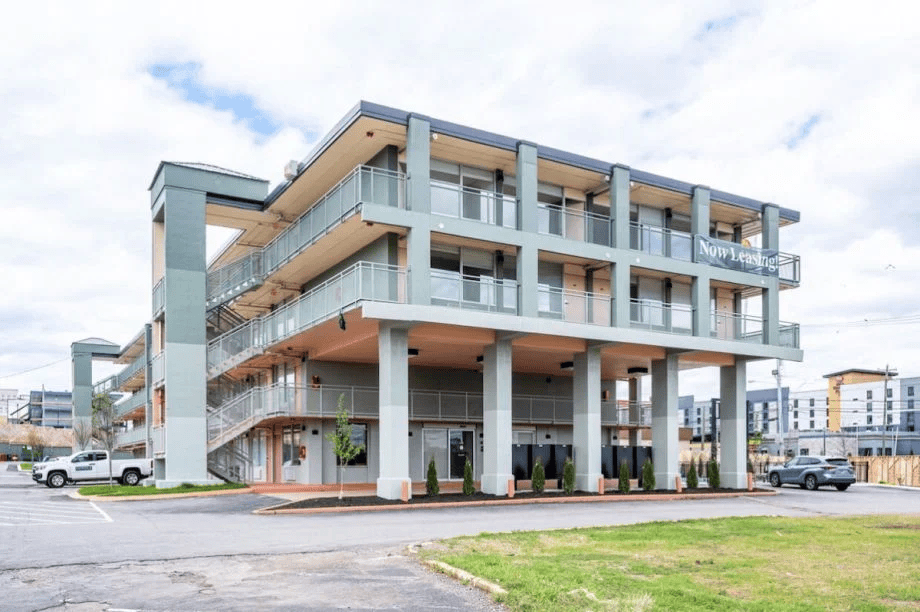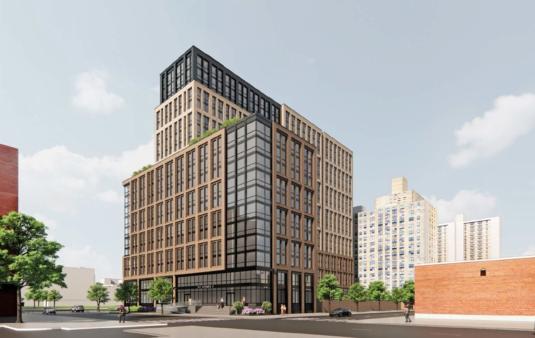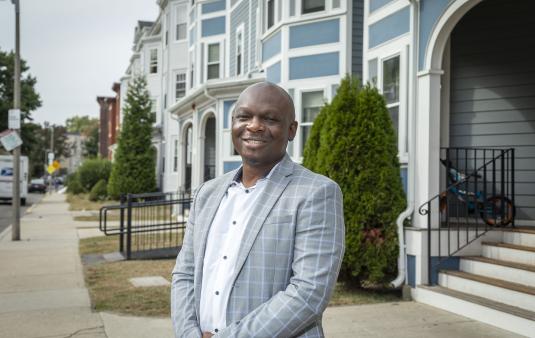Adaptive reuse offers real estate developers — and the communities they work in — a host of benefits. It preserves existing architecture while making use of new energy-efficient materials, reduces pollution and waste, and transforms vacant, abandoned, or deteriorated properties into opportunities.
That is the approach developers Clay Adkisson and Austen Helfrich are taking. They are interested in what is left behind when big cities develop — especially cities like their native Nashville, Tennessee, which has experienced explosive growth over the last decade. Adkisson has a background in architecture and urban design; Helfrich’s focus is finance and development. Together, they are delivering quality affordable housing in response to Nashville’s rental housing crisis.
A former Super 8, now dubbed The Wilder, has been transformed into 97 studio apartments with a $3.3 million loan from BlueHub Loan Fund and additional financing from other sources. Forty percent of the units will be deed-restricted to individuals earning at or below 75% of the area median income (AMI). The adaptation required creativity. The old motel lobby has become a co-working space for tenants; the commercial laundry now houses both washers and dryers and a dog spa; there is a Peloton studio and a swimming pool. Adkisson notes, “We are focused on going beyond what people think of when they think of affordable housing.” That is true for cosmetic finishes — bespoke cabinets, Murphy beds, luxury conveniences — and upgraded essentials like a new water main that brings fresh water into the building.

Like many growing cities, Nashville has done a tremendous job of building new high-end properties — but workforce housing has been squeezed. Rents at The Wilder will be 25% to 30% lower than current rents for comparable apartments, and it will accept Section 8 Housing Choice Vouchers, enabling tenants to pay 30% of their income for rent and utilities.
Of course, retrofitting a former motel has its challenges. “In The Wilder, the largest unit is 300 square feet,” says Adkisson, “so we have to be really thoughtful with our design to provide the most livability.”
They also found they needed a partner who understood their vision. “One of the biggest hurdles in adaptive reuse is finding good financial partners. A local Nashville lender is much more comfortable lending to a high-end ground-up development. When we told lenders that we wanted to turn a motel into apartments, the door would shut,” Adkisson says.
“BlueHub’s scale and experience was crucial; they were comfortable based on their adaptive reuse experience in other cities.” BlueHub Loan Fund brought more than money.


